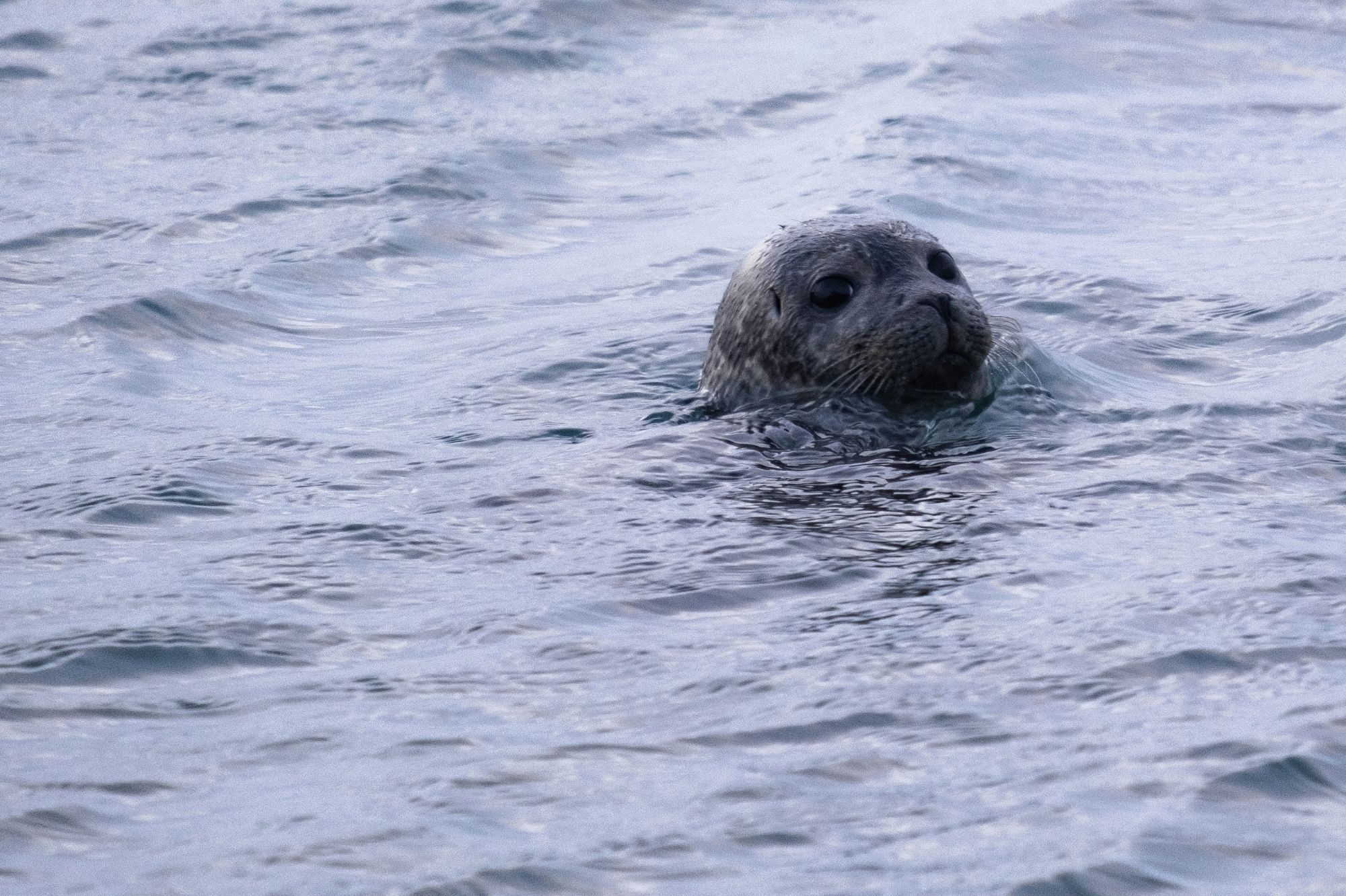Story
Safeguarding marine animals amid the UK’s offshore wind energy expansion
02 May 2025
PML’s Dr Peter Miller’s research on the relationship between ocean fronts and biodiversity hotspots has been cited in the 2024 Offshore Wind Report by The Crown Estate.

In 2024, Plymouth Marine Laboratory (PML) took part in a project led by The Crown Estate (along with University of Aberdeen and University of Bangor), to better understand the relationship between ocean fronts and biodiversity hotspots, through the FRONTWARD project (Fronts for Marine Wildlife Assessment for Renewable Developments).
Ocean fronts are narrow zones in the ocean where bodies of water with different characteristics meet, and these interfaces are hotspots for rich and diverse marine life, influencing the foraging distribution of many megafauna.
The project aimed to enhance our understanding of the relationship between ocean fronts and biodiversity hotspots, and to evaluate how that data can be applied in the future planning of marine sectors, such as offshore renewables.
This week, The Crown Estate published the 2024 Offshore Wind Report, designed to support evidence-based decisions on the siting of future offshore renewable energy projects and balance the conservation of marine animals with the acceleration of offshore wind in the UK.
The report includes research from PML scientists working on the FRONTWARD project: Principal Investigator Dr Peter Miller in addition to Dr Andrei Kurekin, Dr Emma Sullivan, Dr Juliane Wihsgott and Dr Graham Quartly.
Dr Peter Miller, Principal Earth Observation Scientist at Plymouth Marine Laboratory, and Principal Investigator of the FRONTWARD project, said:
“We have analysed a long time-series of Earth observation (EO) data using novel algorithms to characterise the distribution and dynamics of ocean fronts, and used these to investigate links to biodiversity hotspots and to explore key drivers for changes in fronts and these relationships.”
“FRONTWARD aims to provide evidence to justify the inclusion of frontal locations in marine spatial planning, most pressingly for zones for offshore windfarms. Biodiversity hotspots are identified using a biodiversity index, created using an unprecedented collation of UK at-sea observations of seabirds, fish and cetaceans spanning several decades (1980s-2020s). Generalised additive models (GAMs) reveal the spatial influence of fronts on biodiversity, and provide predictions of biodiversity based on EO-detected front maps. The outcomes from this project will feed into the evidence base for marine conservation, and decisions on siting of future offshore renewable energy projects.”
“It’s rewarding that our FRONTWARD project to support conservation of mobile marine animals is contributing to the UK effort to accelerate offshore wind energy.”
Access The Crown Estate’s 2024 Offshore Wind Report here >>
Sarah Wren, Marine Evidence Manager at the Crown Estate said:
“Last month, the FRONTWARD project wrapped up, and its findings are already making a difference. The outputs are informing our Marine Delivery Routemap (via the Whole of Seabed Programme), refining how we integrate mobile species datasets into our planning. By doing so, we’re ensuring that renewable developments not only drive innovation but also support broader ecosystem health and nature recovery.”
Dr Miller recently presented research from FRONTWARD project during the ESA BIOSPACE25 – Biodiversity insight from space conference in Italy, and will show the final results at ESA Living Planet Symposium in Vienna in June.
Related information
About The Crown Estate:
The Crown Estate is an independent business, helping to drive the UK’s transition to a net zero, energy-secure future while supporting inclusive communities, economic growth, and the protection of nature and biodiversity. ‘Across communities, countryside, coast and seabed, we own and manage land for the benefit of the nation. We are an independent business sitting between the public and private sectors, acting in the national interest both today, and for future generations.’
